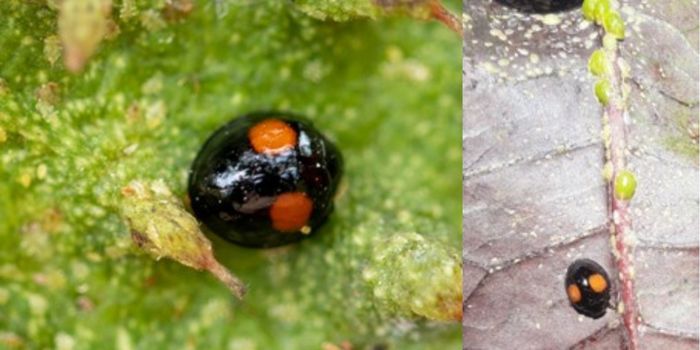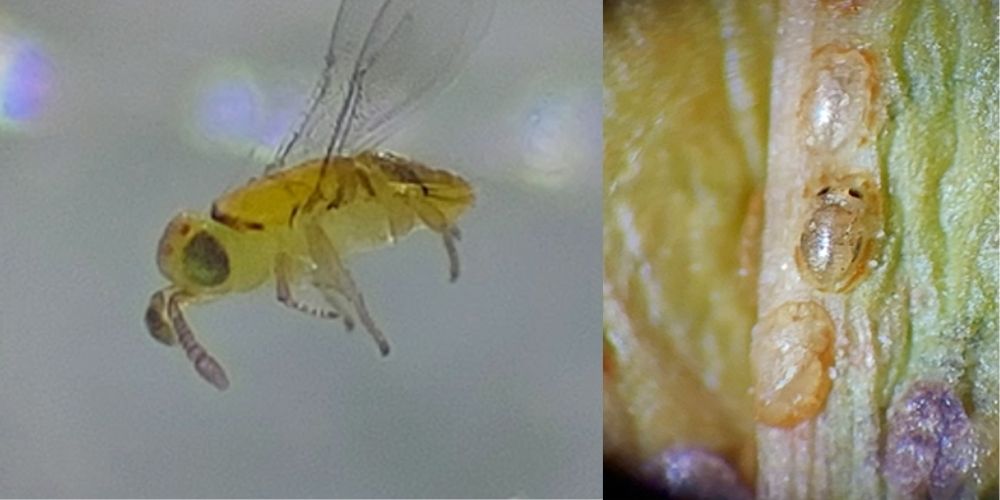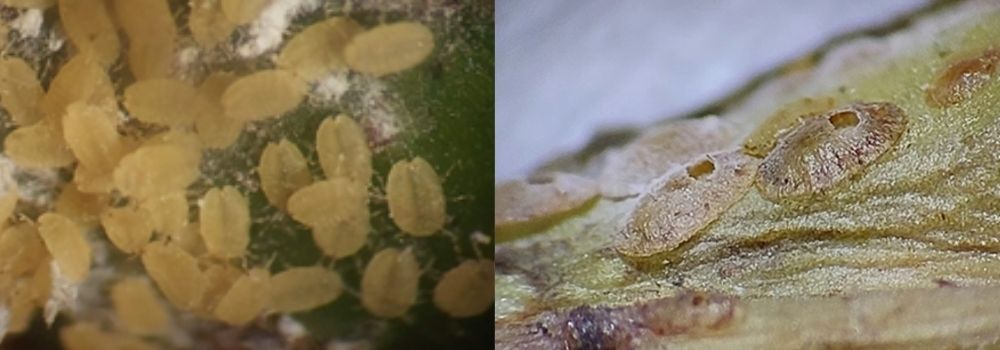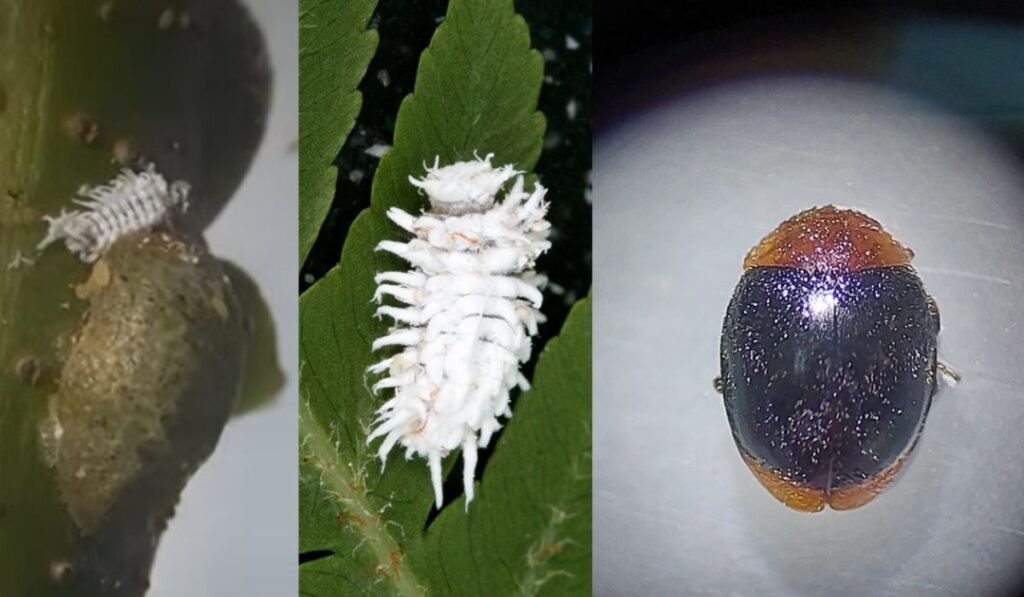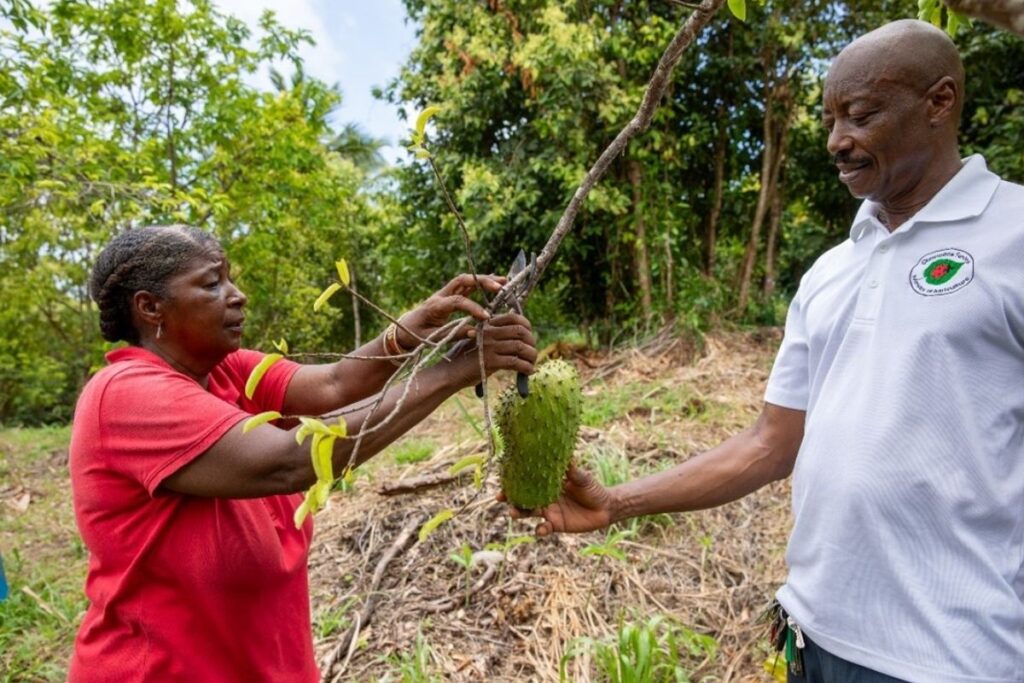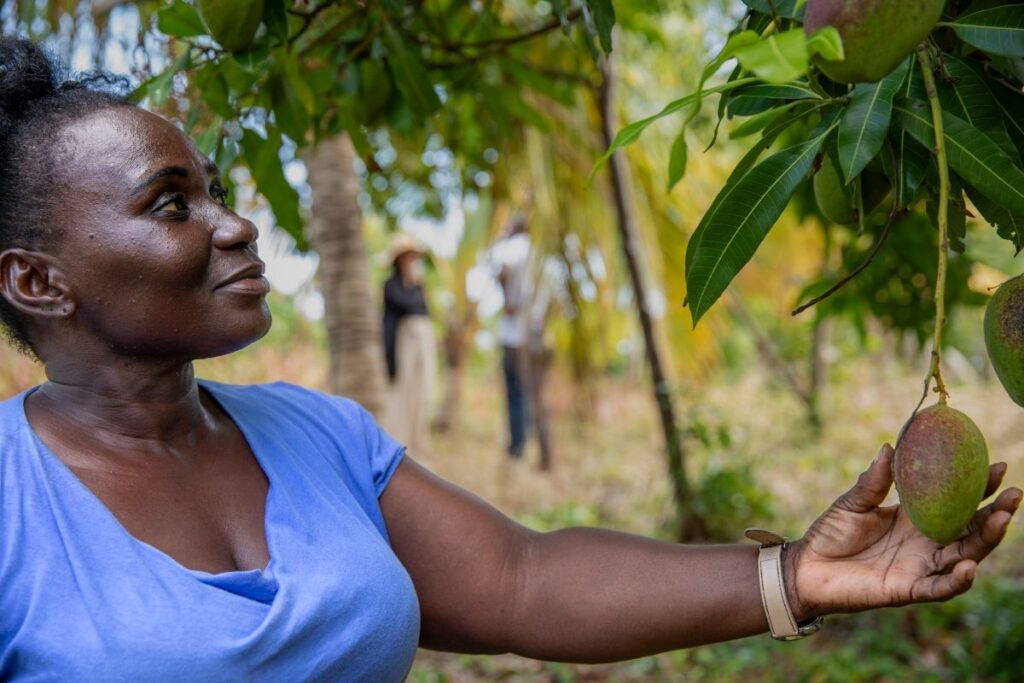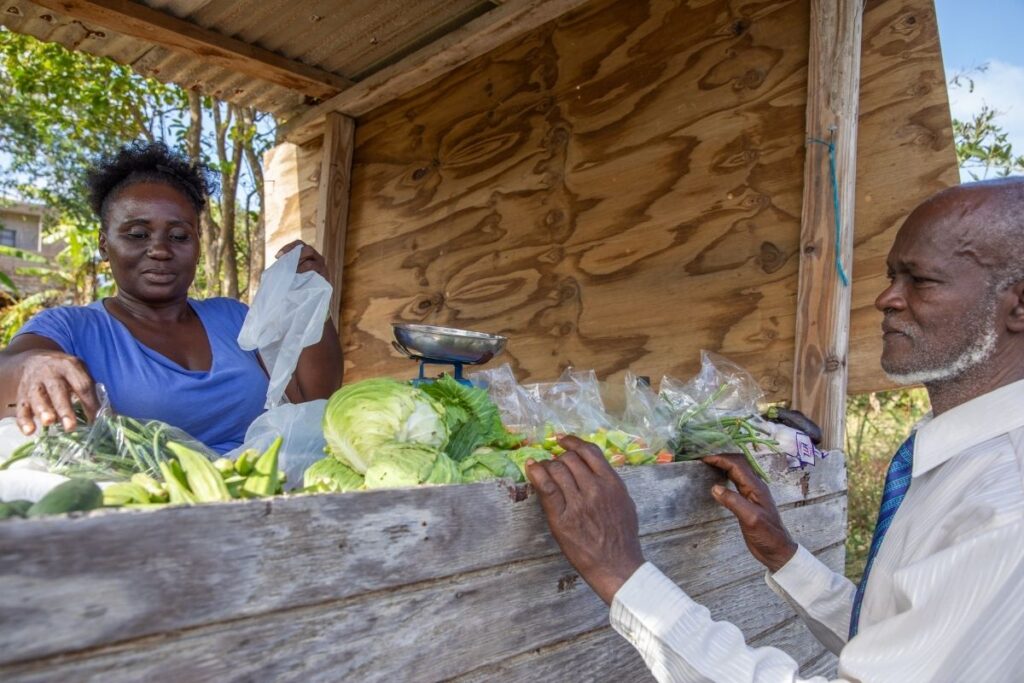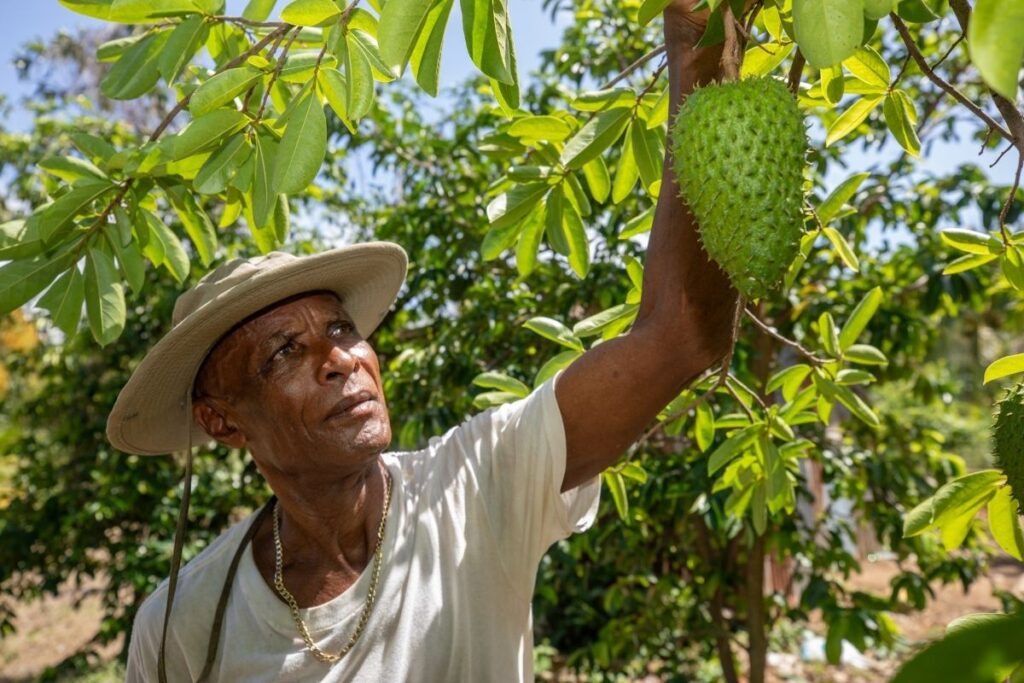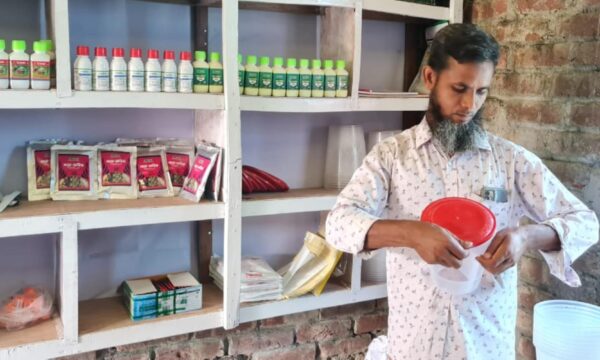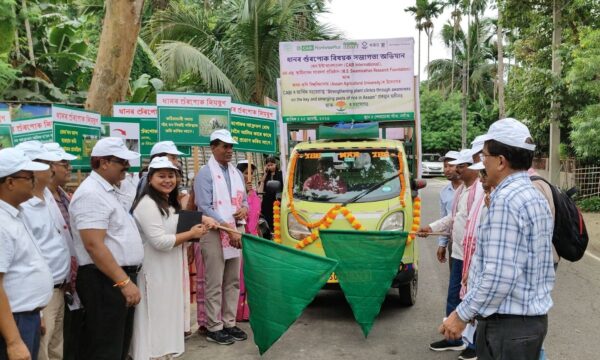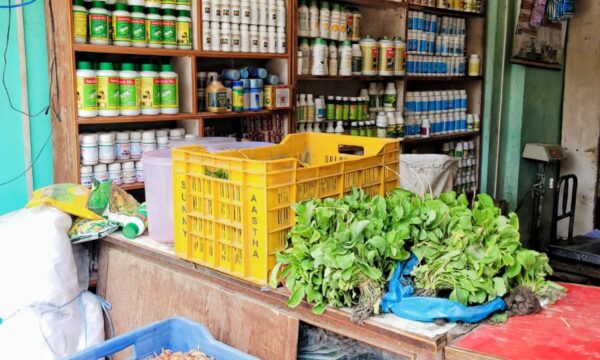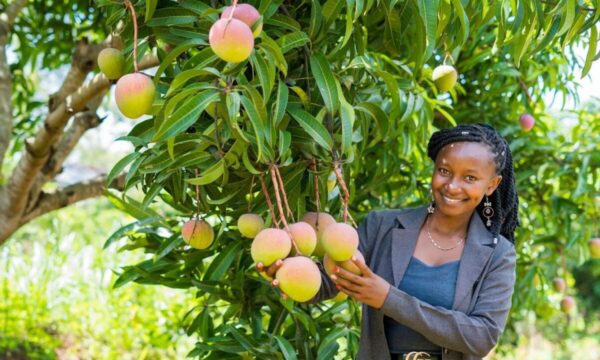In Grenada’s lush tropical landscapes, a tiny pest, the Croton scale, is having a massive impact. But thanks to the power of nature and knowledge sharing, change is underway.
Through the combined efforts of the Ministry of Agriculture, CABI PlantwisePlus, and the Sandals Foundation, the sustainable management of croton is being evaluated as part of an IPM strategy. Biological control is an important aspect of IPM, as parasitoids and predators help regulate pest populations at the field level.

Croton scale: the problem in the field
The Croton scale (Phalacrococcus howertoni) is a small, invasive pest. Adult females are wingless and around 4 mm long, while males are orange-bodied, gnat-like insects. The pest can attack different crops, including fruit trees, ornamental plants, and native plants. Croton scale insects can significantly impact plants by sucking sap, leading to yellowing and premature leaf drop, and producing honeydew that encourages the growth of sooty mold, which can block sunlight and further weaken the plant. This damage can reduce plant vigour and potentially lead to plant death, especially in cases of heavy infestation or if the plant is already stressed.
Croton scale feeds on vital crops and ornamentals, leaving behind yellowed leaves, sooty mold, and unmarketable fruits. By late 2023, many plantations in Grenada were under threat.
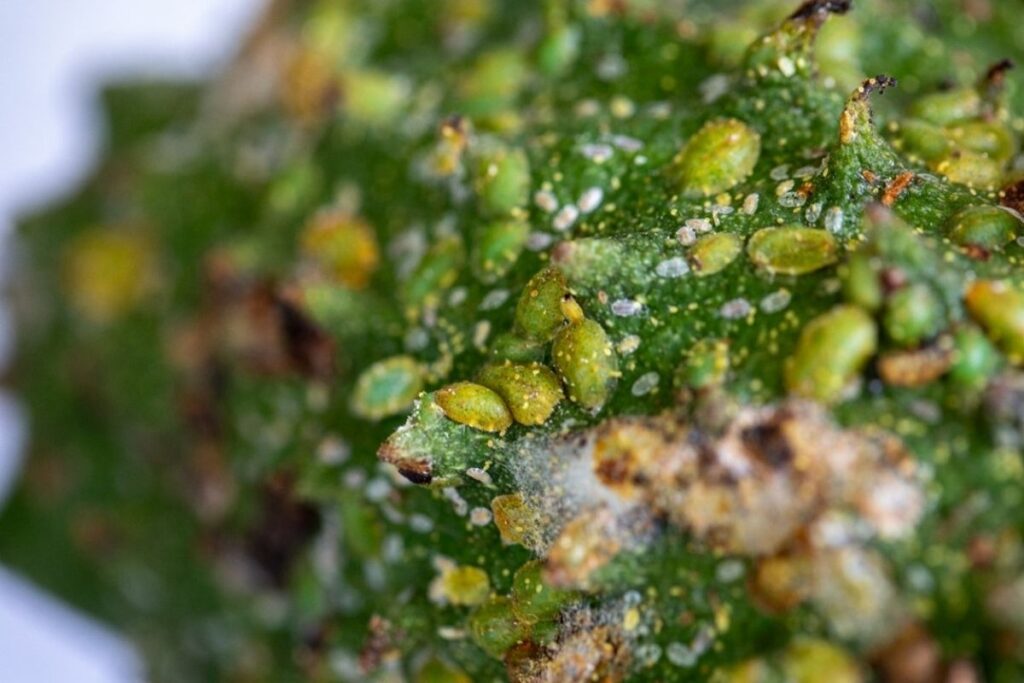
Nature’s solution
Natural enemies such as ladybugs, lacewings, and parasitoid wasps can help control Croton scale. These pest control measures play a crucial role in restoring plant health and reducing reliance on chemical pesticides.
Natural enemies include Metaphycus sp. , a parasitoid of Croton scale. In Grenada, this parasitoid is being identified as the key natural enemy that suppresses the pest population. These small wasps develop through egg, larval, and pupal stages inside the scale insect host. The adult wasps emerge from the scale insect by creating a round hole in the mummified covering.
Another enemy is Cryptolaemus montrouzieri, a type of ladybird beetle in the family Coccinellidae. These beetles are predators of Croton scale.
Training and tech transfer
Sharing information on IPM is crucial for establishing sustainable management strategies at the national level. Also key is collaborating with the public-private sector, farmers’ associations, and global programmes such as PlantwisePlus. Through workshops, field visits, and one-on-one guidance, knowledge is being transferred directly to those who need it most.
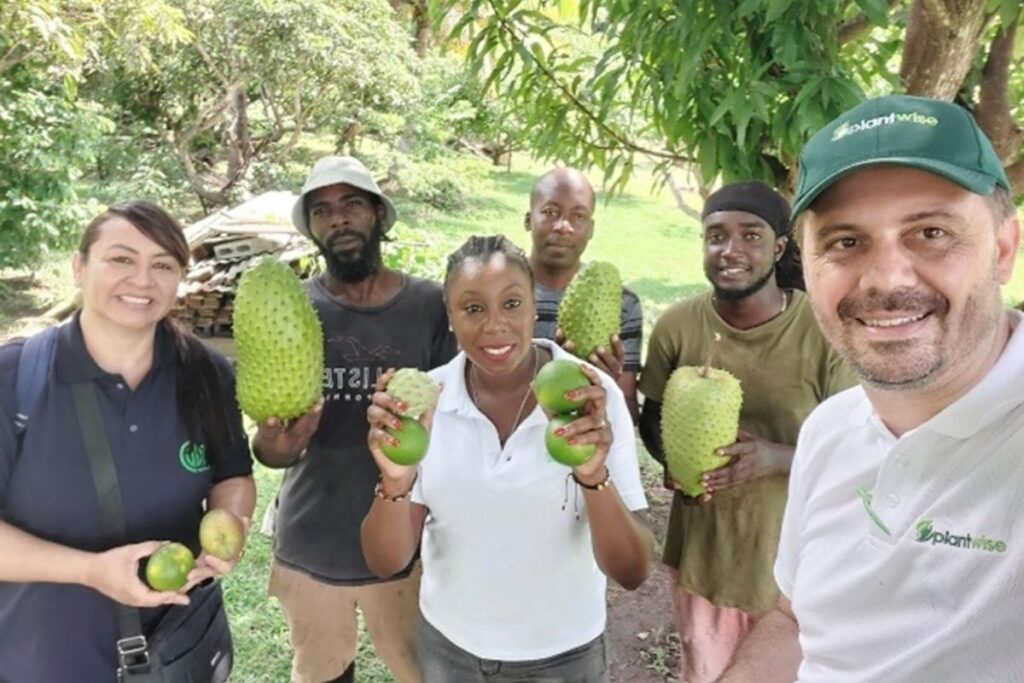
Farmers in action
With the proper knowledge and tools, farmers are embracing biological control. Not only are their crops recovering, but they are also avoiding pesticide residues and lowering costs.
Early results indicate healthier plants, reduced pest infestations, and improved marketability of tropical fruits. The success in Grenada is paving the way for regional adoption across the Caribbean.
What’s next
This project contributes to establishing sustainable management of this invasive species and reinforces food security and safety at the national level. It is hoped that the results can be transferred to other Caribbean islands that may face similar challenges due to the invasive nature of the Croton scale.
Further reading
PlantwisePlus biological control infographic
Types of biological control: augmentative, conservation and classical
CABI publishes first guide to the naturalized and invasive plants of the Caribbean
The Sandals Foundation is a non-profit organization launched in March 2009 to help Sandals Resorts International continue to make a difference in the lives of our people.
PlantwisePlus gratefully acknowledges the financial support of the Directorate-General for International Cooperation (DGIS), Netherlands; European Commission Directorate General for International Partnerships (INTPA, EU); the Foreign, Commonwealth & Development Office (FCDO), United Kingdom; and the Swiss Agency for Development and Cooperation (SDC).
Images: Noah Friedman-Rudovsky for CABI, Yelitza Colmenarez (CABI) and Alexander Acosta (CABI Associate).
Related News & Blogs
5 ways digital agriculture tools are transforming pest management
Finding accurate, locally contextualised information at the right time is essential for tackling crop pests. Digital agriculture tools are helping farmers and those who advise them by putting expert knowledge directly in their hands. 1. Early pest diag…
12 February 2026

